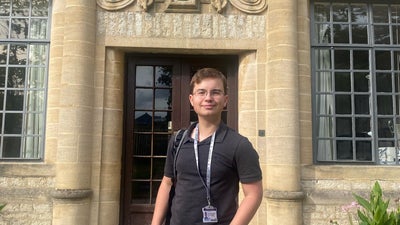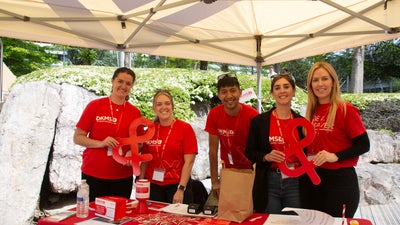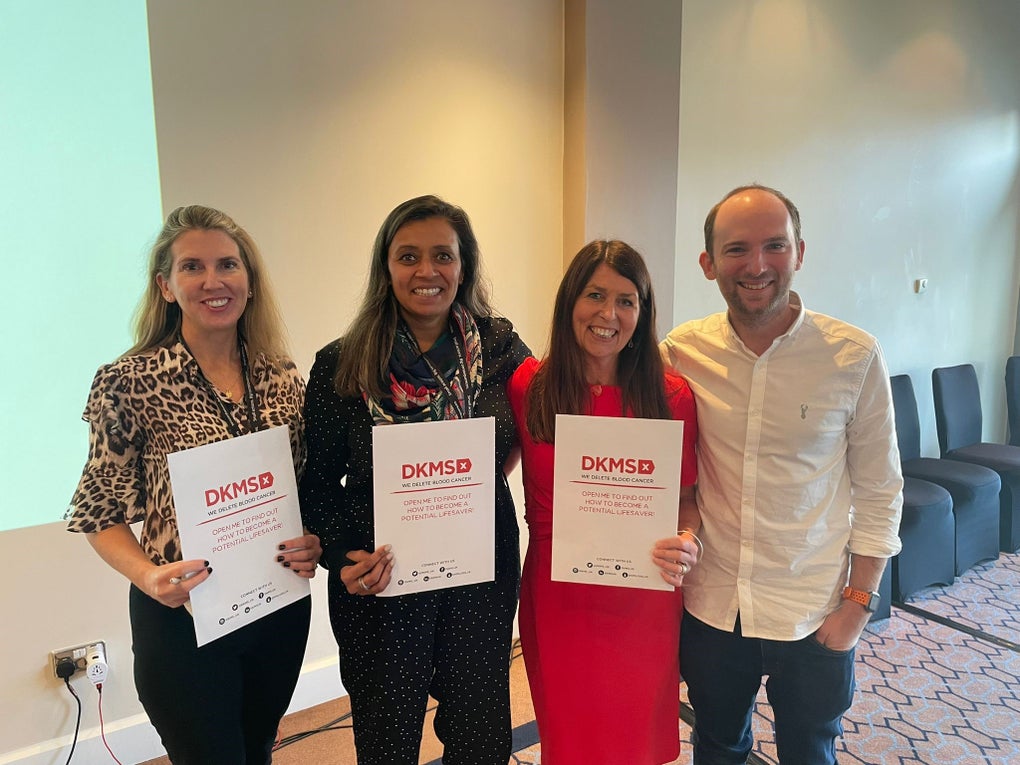
'Driving Knowledge (about) Magnificent Stem cells'
What DKMS means to me
DKMS is way more than a job to me! I’m passionate about the subject matter and have a huge amount of empathy for people and families going through it. Unfortunately, I have ‘experience’ that gives me gravitas and heart when I talk about it.
I don’t want other people to go through what we as a family have and continue to go through. This is a numbers game: we can affect this, we can change those statistics. I get giddy and excited about doing that.
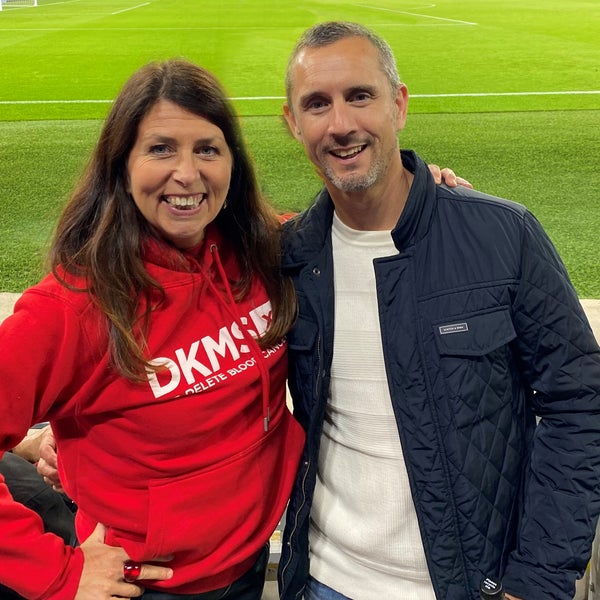
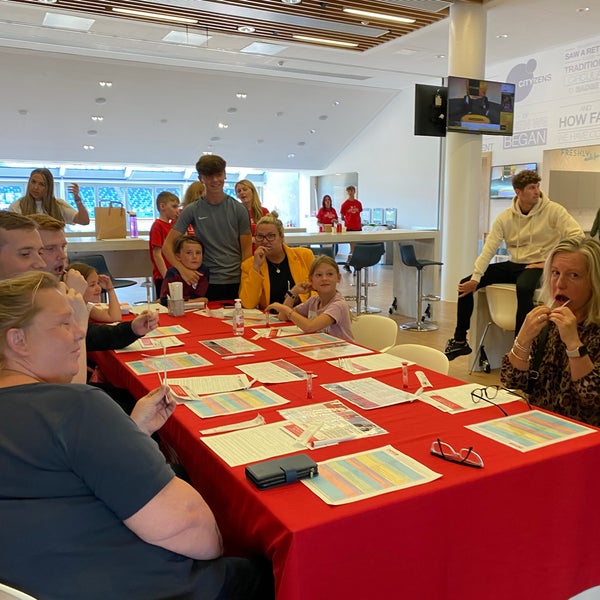
My experience
I first heard about blood cancer when one of Louie’s best friends was diagnosed with leukaemia, aged just eight. The school was supportive. It meant they had to discuss ‘cancer’ in class to explain what was wrong with Ruby. She was very poorly, but thankfully she is now well, and in remission.
Cancer diagnosis in my family
What we didn’t expect was that while Ruby was being treated, we would face a blood cancer diagnosis in our own family. My husband Andy was super fit; he used to cycle work, a 45-mile round trip, at least two to three times a week as well as cycling for fun at the weekends.
Andy did not show any symptoms of blood cancer. While on holiday at Center Parcs during October half term, he aggravated his back when throwing himself down the flumes in the swimming pool. He took some pain relief and while it lingered for a few days, maybe even a week, it then disappeared.
A few weeks later the pain returned; I suggested he should get it looked at. It seemed strange it had returned, but we thought little of it. Just before his appointment, Andy sneezed. That sneeze sent electric shocks down both his legs and he had instant pins and needles. The doctors we saw were unperturbed.
By the following Friday Andy had lost the use of his legs and I had to call an ambulance. Initially, the hospital were speculating it was something to do with a disc or perhaps a bone had been broken, but nothing ‘serious serious’.
Specialist spinal care
We were transferred to Stoke where there is a specialist spinal unit. Andy underwent six hours of surgery: a tumour was strangling his spinal cord. The task of learning to walk again was top of the agenda. Andy underwent physiotherapy and a pretty intense rehabilitation plan, but, being a cyclist, he loved training. He grabbed it with both hands and would even sneak off in his wheelchair to the pedal machine to do extra work!
A few weeks later we were then given the devastating news that Andy had non-Hodgkin’s lymphoma, a blood cancer. We were told it was ‘treatable and curable’ - two words regretfully I used when telling the children about Andy’s illness - who were nine and 12 at the time. Those words haunt me, because, despite many rounds of chemotherapy and radiotherapy and having many things in his favour, like his age, level of fitness etc, Andy did not survive. He died after two years of treatment, aged just 46. It tore us apart.
Trying to be normal
I spent the next two years supporting my kids, trying to be Mum and Dad but mostly trying to maintain some kind of normality, whatever that meant, and keep them distracted at school.
Izzy, then 14, spoke at Andy’s funeral. She wrote and delivered a beautiful speech, and managed to make a congregation of over 200 plus people laugh; he would have liked that.
My kids are both incredible and vulnerable. They have both taught themselves to channel their grief and sadness to do positive things and not let our experiences define or defeat them. But it’s tough and it breaks my heart they don’t get to do some of the things Andy desperately wanted to share with them…have his first pint with Louie after a long bike ride...walk Izzy down the aisle ❤
Izzy is now studying for a Master's in Cancer Sciences and is hoping to head to Tanzania this summer to work at a cancer hospital near Kilimanjaro. She’s after that cure.
Working with DKMS
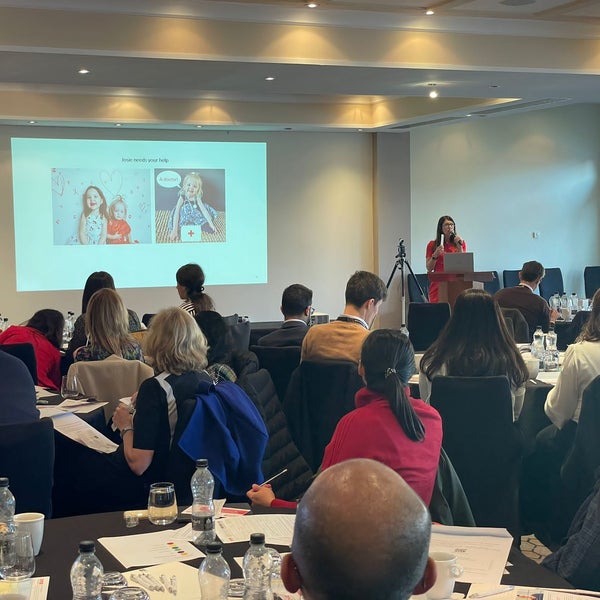
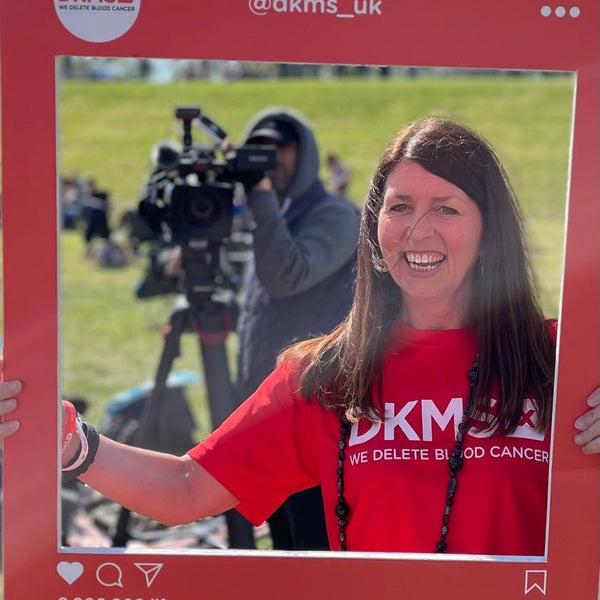
My relationship with DKMS began when I wanted to use the DKMS logo on a t-shirt we wear for Andy’s Run, a #teamclague run we have done every year since he died. We had raised a lot of money the first year - £30,712 for The Christie. I felt strongly we couldn’t ask for money again, so we asked people to register with DKMS instead.
I asked Andy’s firm, On The Beach, to support us and organised a swabbing event there; DKMS UK registered their 500,000th donor on that day. I was then asked to go and speak at a firm of solicitors in Manchester; that was the first time I shared the stage with the magnificent Pete McCleave. It was also the first time I had talked publicly about our personal heartbreak.; it was tough.
Pete told me I should work for the organisation. And feeling a little cheeky one Friday, I acted on his words and sent an email to the CEO asking for a job. The rest, as they say, is history!
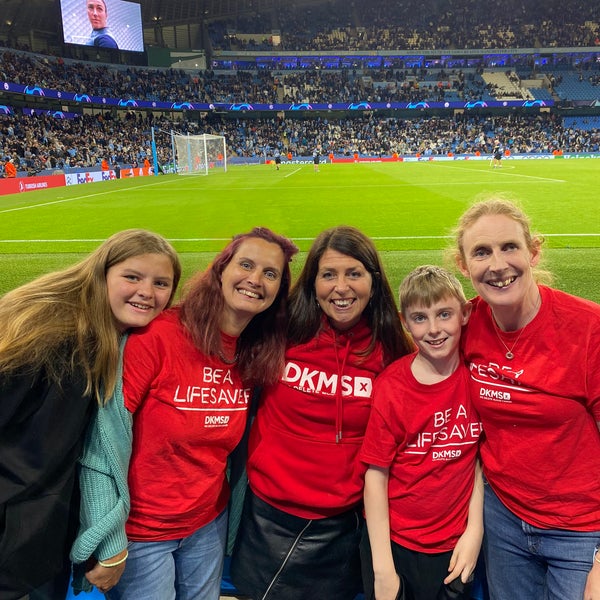
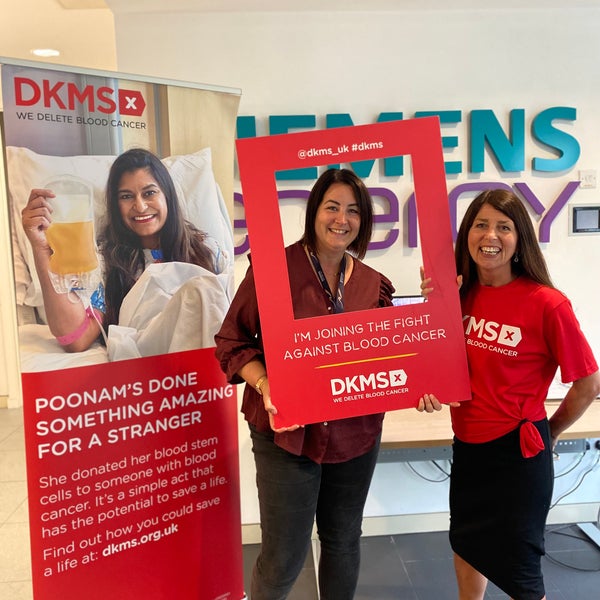
Ideas for encouraging more stem cell donors
I would really like to do a world record attempt for the most swabbers at one given time; it’s an exciting way of engaging people. While it would need a lot of planning and preparation, it would elicit PR and press as well as lots of potential lifesavers!
I would like to try and work with HR departments so that it could be included as part of the induction process or with graduate and apprentice schemes.
The opportunity to speak at events is always fruitful from an awareness point of view, but opening conferences etc and being there to swab and piggyback events where we have a ready-made audience.
Make a docu-film: more media material to share. Get some young TikTok/ Instagram kids to do something cool to engage a younger audience. I’d like Izzy to make a video diary/ of her trip to Tanzania with content that will encourage youngsters to get on board. Even things like having DKMS-branded scrubs for her trip.
It would be wonderful if we could get involved with The National Running Show, The Cycling Show, etc, at the NEC at their events and work collaboratively with other charities.



